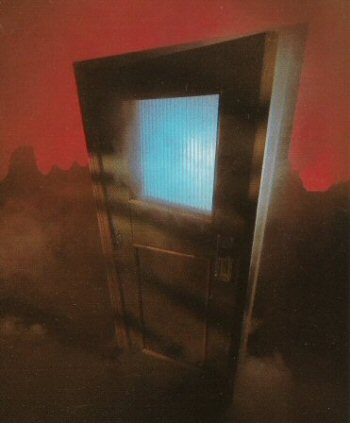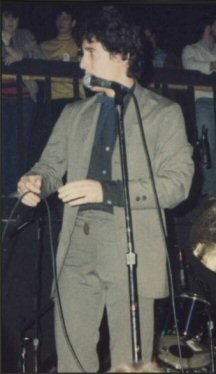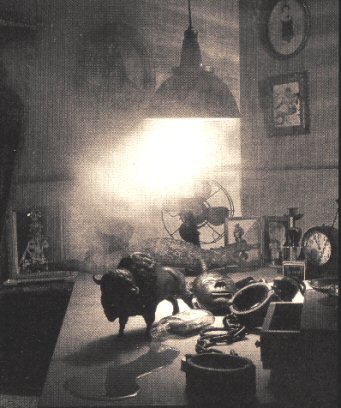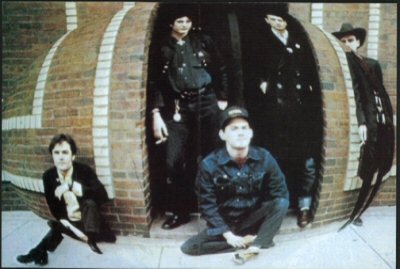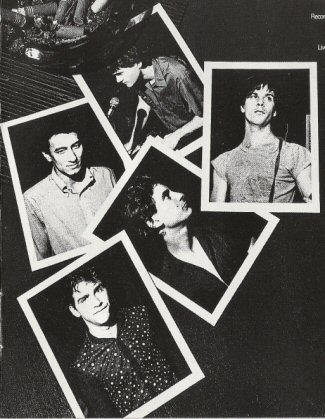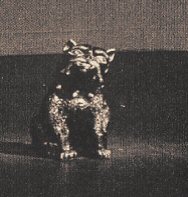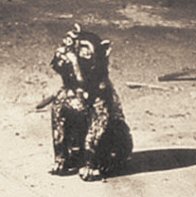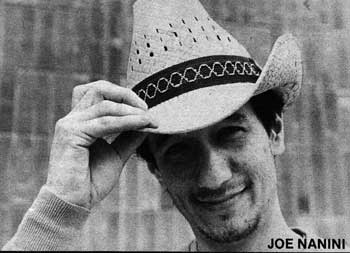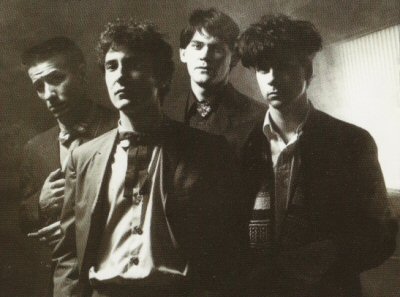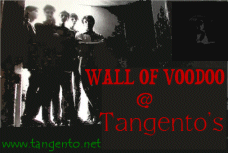| People are turning
out for Wall of Voodoo on the strength of "Mexican
Radio," but what are they coming away with? Ridgway
isn’t sure. "I'm not very good at judging
how the band comes off," he explains. "I've
always looked at what we do as multileveled. Some of it
is completely absurd and some of it is seriously absurd.
A kid could like as much as someone older, but in a
different way. We're definitely not serious enough to be
considered an art band.
"The songs are
a bunch of little Twilight Zones strung together."
Although he denies
any significance, Stan Ridgway's earliest stab at show
business was with a Knucklehead ventriloquist's dummy at
age nine. Ventriloquism, you might say, was a
more primitive attempt at control than voodoo.
He grew up in Los
Angeles, in a house full of country-and-western music.
From there Ridgway got into blues, then jazz, then
classical. "I went to music school as a guitar
player and got totally burned out," he notes.
By the mid - '70s
he was committed to bebop. "Charlie Parker was my
hero. I wanted to be the Ornette Coleman of guitar. But
it got to the point where I didn't want to go in that
direction anymore; it had become a question of who's the
fastest gun. I wanted to simplify the structures of
'jazz-rock confusion music' and perhaps make songs out of
it."
Ridgway's
experiments circa 1976 foreshadowed much of what makes
Voodoo's music intriguing today. If he sounds like an
egghead, this explanation is really very simple:
"I started
working with rhythm machines because I wanted to alter
the ratio between rhythmic and harmonic elements. In most
songs the chords move along very evenly-dum, dum, dum-and
so do the drums. I was bored with that orthodox setup.
"I came across
the idea of making the rhythm go a different speed than
the chords. That sets up a relationship the listener can
enjoy whether he's aware of it or not. I wanted to get
away from the kind of music where people said, 'He sure
plays that diminished scale so groovy over that
chord!’ That's so pedantic."
In 1977 Ridgway
formed a partnership with guitarist Marc Moreland, who
introduced him to the work of Kraftwerk, Eno and kindred
spirits. One thing that did not figure in his plans was
the rapidly spreading punk movement, which he describes
as "three chords, a cloud of dust, and a hearty
hi-yo Silver. I enjoyed the aggression, but.. .."
(His education is showing.)
|
